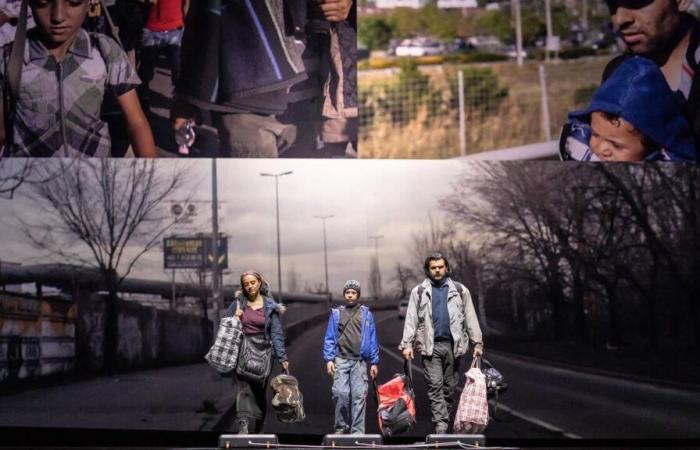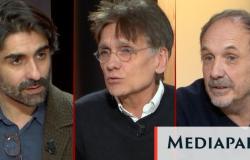Create despite everything
He could have adapted his work to comply with the demands of the censorship, but this is a sacrifice that Kornél Mundruczó refuses. “I cannot submit to this type of control. Art should be created with honesty and innocence. Self-censorship would destroy me. » For Mundruczó, working in Hungary has therefore become almost impossible. “Critical art no longer exists there. Creative freedom is largely limited there. This is not necessarily direct censorship of works of art, but a complete lack of funding which leads to the same result. » Without denying its origins and its history, it must constantly redouble its efforts to find other sources of financing, particularly abroad. This is the case of Parallax, his latest play, created in co-production with the support of around ten Swiss, French, Italian, Greek and German institutions. “Having to create in these conditions is particularly difficult. Everything takes a lot more effort and work. Having succeeded in making Parallax is a source of great pride for me. Despite the lack of support from Hungary, this piece remains firmly anchored in the Hungarian historical context. I am fighting to maintain my roots and my identity. » Having lived in Berlin for five years, he admits that he no longer works in his country of origin. “I still have a home in Budapest, but when I go back it is above all for pleasure, to meet my friends and family. »
Drop the armor
Kornél Mundruczó’s work has often been described as provocative or politically engaged, but he does not believe in political art. “I think that activist works can be counterproductive, that they fail to change the world in the long term. My work is critical. He tackles reflections on identity and social context head-on. But I try to do this with a lot of sensitivity, to empathize with the characters I portray. Power and politics are devoid of empathy, so I think this is an effective way to give strength to my work. »
Concerning provocation, the artist sees something essential in it. “A good work is always provocative – this is also the case with the opera Salomé. It’s about piercing the soul and hearts of the audience. By sacrificing a part of himself, the artist can reach the spectator and make him lose his armor. It is this laying bare that allows us to approach art with a certain innocence, a certain purity and emerge from this experience completely transformed. »
An attitude that he adopts in all his work, whether in theater, cinema or opera. “For a long time, opera was treated conservatively. Today, thanks to institutions like the Grand Théâtre de Genève, this genre is experiencing a full renaissance. A work like Salomé is filled with reflections on power, the absurdity and violence of crime, the contradictions between wealth and poverty, justice and injustice, between what is said and what is silenced. Opera is a total art that allows many messages to be conveyed. »
Passionate about art, Samuel Golly made his curiosity his profession. By collaborating with several festivals, he participates in the production of events such as La Bâtie or Black Movie. At the same time, he writes regularly in the French-speaking press, notably for The Mail or the Geneva Tribune.
Salome at the Grand Théâtre de Genève
From January 22 to February 2, 2025
Site
Ticketing






